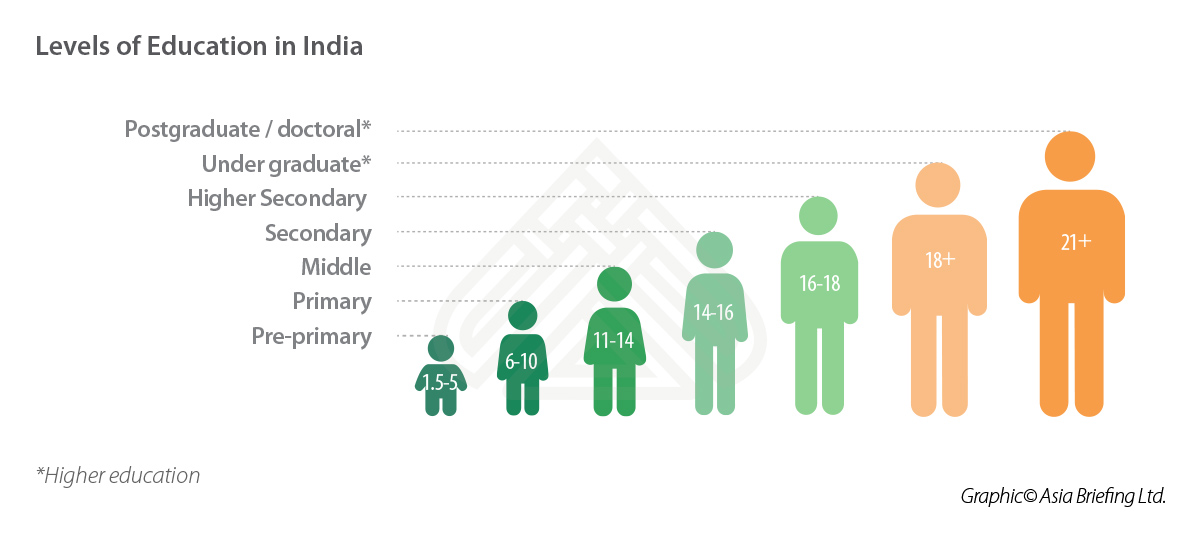Non-Profit Organizations Driving Positive Change in Education Sector of India
Prominent NGOs actively working for Educational Development
There are few notable non-profit organizations in India that are undertaking wonderful initiatives to improve the education system. Bhumi, an Indian youth volunteer NGO based in Chennai has around 5,000 volunteers spread across major cities in India. They are currently operating in 10 locations and their teaching pedagogy and curriculum has proved to be highly effective. Teach For India, a Mumbai-based NGO has a presence in 6 major cities with over 900 fellows and 660 alumni striving to catalyze change. They recruit talented graduates to teach for two years in low-income schools. MAD or Make a Difference, a NGO based in Kochi, Kerala focuses on improving English language skills and career guidance of students. They have trained close to 2100 volunteers to impart education to more than 5200 children across 20 cities in India.

Volunteering opportunities with reputed NGOs
There are various avenues for individuals to volunteer and contribute regardless of their educational qualifications or professional experience. Volunteering is a great way to gain meaningful work exposure and give back to the community simultaneously. When opting to volunteer for an NGO, it is prudent to check their legitimacy by verifying their registration status. Some of the top rated organizations welcoming volunteers include Bharti Foundation, Cure International India Trust, Goonj which works in waste management and community development, and Make a Difference. The author is currently associated with APNELOG NGO based in New Delhi which carries out pioneering initiatives in education and healthcare for underprivileged children.
Steps to start your own non-profit education organization
For aspiring social entrepreneurs willing to launch their own nonprofit, the initial steps involve forming a team of like-minded individuals who are passionate about the cause. Next, scouting for a suitable location to operate from which can be government schools, community centers etc. As funds are usually limited for startups in the social sector, cost optimization should be a priority. Reaching out to existing organizations to seek guidance on sustainable scaling models and impact measurement frameworks is also recommended. Timely registration of the entity is crucial to qualify for CSR funding opportunities as corporations are eligible for tax exemptions only when supporting established nonprofits. Continuous evaluation and refinement of strategies based on feedback is key to achieve lasting transformation.
Teaching methods adopted by leading NGOs
Leading nonprofits in the education domain have implemented innovative teaching-learning practices to effectively impart knowledge despite constraints. Bhumi focuses on activity-based and experiential learning to make lessons engaging for children from low-income communities. Their specialized curriculum aims at holistic development beyond academics. Teach For India fellows leverage learner-centered pedagogy keeping individual requirements in mind. Small group sessions, project-based assignments and use of educational technology tools are some methods deployed. MAD promotes peer-assisted learning to boost confidence and comprehension. Senior students support juniors through doubt-clearing sessions and collaborative activities. Continuous assessment and progress tracking ensures optimal learning outcomes.
Impact of non-profit interventions
The hard work of education nonprofits is yielding commendable results as evidenced by various impact studies. According to Bhumi’s annual report, over 90% of students showed significant improvement in subject knowledge after 6 months of training. As per Teach For India’s data, 89% of fellows’ pupils in grade 10 passed in the 2023 exams, indicating successful school completion rates. An independent evaluation of MAD reported that participating children demonstrated nearly 25% higher conceptual clarity and analytical thinking compared to before. Such encouraging statistics demonstrate how dedicated efforts are narrowing the learning gaps. However, much remains to be done given the massive scale of challenges. With increasing collaboration between governments, corporates and civil society, the future looks positive for equitable quality education for all.
Role of Corporates in furthering Social Impact
Corporate social responsibility (CSR) initiatives have proven to be a gamechanger complementing the work of non-profits. As per regulations, large companies in India must earmark 2% of their net profit for CSR yearly. Many channelize these funds towards education to create long-term impact. Tech Mahindra Foundation’s program to set up smart classrooms has upgraded learning infrastructure in remote regions. HDFC Bank’s Parivartan initiative provides academic support, soft skills training and career guidance to youngsters from low-income groups across 15 states. Proactive collaboration where corporates provide not just capital but technical expertise and networks amplifies social change. Impact assessment partnerships ensure fund allocation according to measurable outcomes. With the collective efforts of all stakeholders, India is gradually but surely progressing towards the vision of universal quality education for all children.
Continued Scope for Development
While substantial advancement has been achieved, many roadblocks persist requiring ongoing attention from committed organizations. Digital divide is still prevalent with lack of devices and connectivity impacting online education for underprivileged sections during the pandemic. Retention of students, especially girls and vulnerable groups, until higher secondary level continues to be challenging. Scarcity of qualified teachers, especially in rural areas necessitates continuous capacity building efforts. Education nonprofits are continuously innovating with use of hybrid learning models, community involvement, vernacular content and fun learning initiatives to help bridge prevailing disparities. With the spirited efforts of volunteers, donors, corporate partners and social enterprises, it is hoped that one day, every child’s fundamental right to learn will be fully realized.
